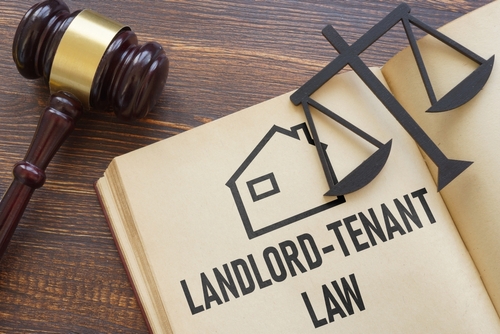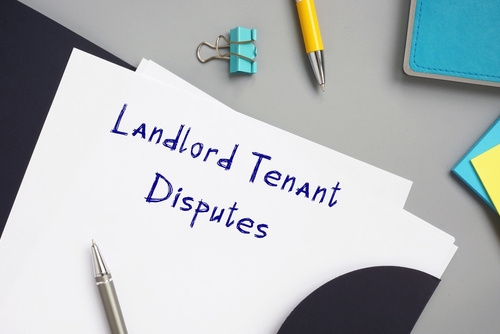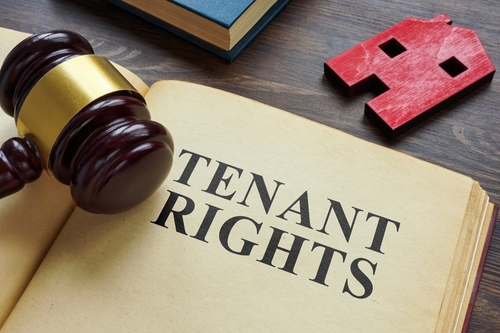Whether you’re a seasoned investor or a new rental property owner, there may be a time when you need legal advice for landlord-tenant issues. It’s crucial to stay up-to-date with federal, state, and local landlord-tenant laws to avoid potential issues. However, it’s important to know when to seek legal advice if you find yourself in a dispute or disagreement. Check out the video below to learn more about when and how to find legal advice for landlord-tenant issues.
Contents of This Article:
- Importance of Understanding Landlord-Tenant Laws
- When Do You Need to Seek Legal Advice?
- How to Find Legal Advice for Landlord-Tenant Issues
- Ensure Compliance With Property Management
Importance of Understanding Landlord-Tenant Laws
Understanding landlord-tenant laws is essential for landlords, tenants, and Washington, DC property managers. Knowing and following these laws helps ensure a fair and lawful relationship between all parties. After all, landlord-tenant laws outline the rights and responsibilities of landlords and tenants, providing a framework for resolving disputes and protecting the interest of both parties.

Some of the main reasons why it’s crucial to understand landlord-tenant laws include the following:
- Legal Compliance
- Tenant Protections
- Lease Agreements
- Dispute Resolution
- Financial Considerations
- Ethical and Professional Conduct
Legal Compliance
Landlord-tenant laws outline the legal obligations that landlords must fulfill. For example, landlords are responsible for providing habitable living conditions, maintaining the property, and respecting tenants’ privacy rights. So, understanding these laws ensures they comply with all legal requirements and avoid potential lawsuits or penalties.
Tenant Protections
Landlord-tenant laws offer important protections for tenants, like protection against unfair evictions, discrimination, and retaliation. That said, tenants who know their rights under the law are better equipped to assert and defend themselves.
Lease Agreements
Understanding landlord-tenant laws helps both parties create and enforce legally binding lease agreements. After all, these laws state what can and cannot be included in a lease, like security deposit limits, rent increases, and notice requirements. Clearly understanding these laws allows landlords and tenants to negotiate and enforce fair and legally enforceable agreements.

Dispute Resolution
Disputes between landlords and tenants can arise over various issues, whether it’s maintenance, repairs, security deposits, or lease violations. Understanding the applicable laws helps both parties navigate dispute resolution processes effectively. Additionally, this knowledge can help avoid unnecessary conflicts and promote smoother resolution of conflicts if they do arise.
Financial Considerations
Landlord-tenant laws address important financial aspects, like rent control, security deposit regulations, and eviction procedures. Understanding these laws helps landlords set appropriate rent amounts, handle security deposits correctly, and follow proper eviction procedures. This knowledge can help minimize financial risks and potential legal consequences.
Ethical and Professional Conduct
Familiarity with landlord-tenant laws promotes ethical and professional conduct between landlords, tenants, and property managers. In addition, it ensures that everyone gets treated fairly and that everyone’s privacy is protected throughout the entire rental process.
When Do You Need to Seek Legal Advice?
Laws and regulations regarding landlord-tenant relationships can vary by jurisdiction. That said, consulting with an attorney specializing in landlord-tenant law can provide the most accurate and relevant advice based on the specific laws in your area. Here are some examples of when you may need to seek legal advice for landlord-tenant issues.
When Tenants Need to Seek Legal Advice
- Lease Agreement Issues- If you have concerns about the terms of your lease agreement, you may want to consult with an attorney. Then, they can review the lease, provide guidance on your rights and obligations, and advise potential legal remedies.
- Unlawful Eviction or Termination- If a landlord attempts to evict you without following proper legal procedures, seeking legal advice is crucial. A professional can assess the situation, determine if the eviction is unlawful, and help protect your rights.

- Habitability and Repairs- If your rental unit needs several repairs or doesn’t meet the minimum habitability standards, you may need legal advice. Attorneys can help determine if a landlord violates their obligations to provide a safe and habitable environment.
- Security Deposit Issues- You may find yourself in a dispute regarding the return of your security deposit. For instance, you may notice improper deductions or haven’t received the deposit within the required timeframe. In this case, you may need to seek legal advice to help review the applicable laws and assess the validity of the deductions.
- Discrimination or Harassment- If you believe you’ve been subjected to unlawful discrimination or harassment by your landlord, it’s crucial to consult an attorney specializing in housing discrimination. They can help evaluate the situation and provide guidance on filing a claim with the right agency.
- Rent Control or Rent Increase Issues- Some areas have rent control or stabilization ordinances. You may need legal advice if you suspect your landlord is violating these regulations by raising the rent. Attorneys familiar with local rent control laws can help pursue legal remedies if necessary.
When Should Landlords Seek Legal Advice?
- Lease Agreement Drafting- When creating lease agreements, particularly for unique rental situations, it may be helpful to receive legal guidance. An attorney can help ensure the lease terms are legally sound, comply with local laws, and protect your best interests.
- Eviction Proceedings- If you need to initiate an eviction process due to non-payment of rent, lease violations, or other reasons, seeking legal advice is crucial. After all, landlord-tenant laws can be complex and vary by location, so an attorney can help navigate the eviction process.
- Tenant Disputes- In cases where there are disputes with tenants, you may want to consult with an attorney. They can assess the situation, advise on potential legal remedies, and help resolve the dispute legally.
- Discrimination Complaints- If a tenant alleges discrimination based on protected characteristics such as race, religion, gender, or disability, it’s crucial to seek legal advice immediately. Attorneys experienced in fair housing laws can guide you through the process and help ensure compliance with anti-discrimination laws.
- Compliance With Regulations- It’s important to stay up-to-date with local, state, and federal laws and regulations regarding rental properties. Seeking legal advice can help ensure compliance with building codes, safety standards, zoning regulations, and fair housing laws.
How to Find Legal Advice for Landlord-Tenant Issues
When facing landlord-tenant issues, it’s advisable for both landlords and tenants to seek legal advice. In addition, it’s important to consult a qualified local attorney specializing in landlord-tenant law to ensure you’re getting advice relevant to the specific laws in your area. After all, laws and regulations regarding landlord-tenant laws may vary by jurisdiction.
Additionally, you’ll want to consult various sources before proceeding with legal matters. That way, you can ensure that you make the smartest decision for yourself and your business. Utilizing free consultations or finding law resources to help you find answers are great ways to proceed with a legal issue.

Luckily, several free resources provide information or advice for landlord-tenant issues. Some of the best sites to check out for more information include the following.
- LawHelp.org
- American Bar Association
- FreeAdvice: Real Estate Law
- U.S. Department of Housing and Urban Development
- Housing Rights Center
Remember to always be careful when searching online to seek legal advice, and consider getting more than one opinion on your particular issue.
Ensure Compliance With Property Management
It’s not uncommon for landlords or renters to seek legal advice for landlord-tenant issues. However, no matter the issue, the best way to prevent disputes is by staying compliant and knowing your obligations. If you’re a landlord, it’s your responsibility to stay up-to-date with applicable rental laws.
However, owning and operating several rental properties at once can be challenging. That’s why many busy landlords hire comprehensive property management services to ensure compliance while maximizing rental profits.
Learn how property management can help your rental business!
Bay Property Management Group offers services near Baltimore, Philadelphia, Northern Virginia, and Washington, DC. So, if you’re looking for help marketing rentals, finding tenants, collecting payments, performing maintenance, and more, contact BMG today.

